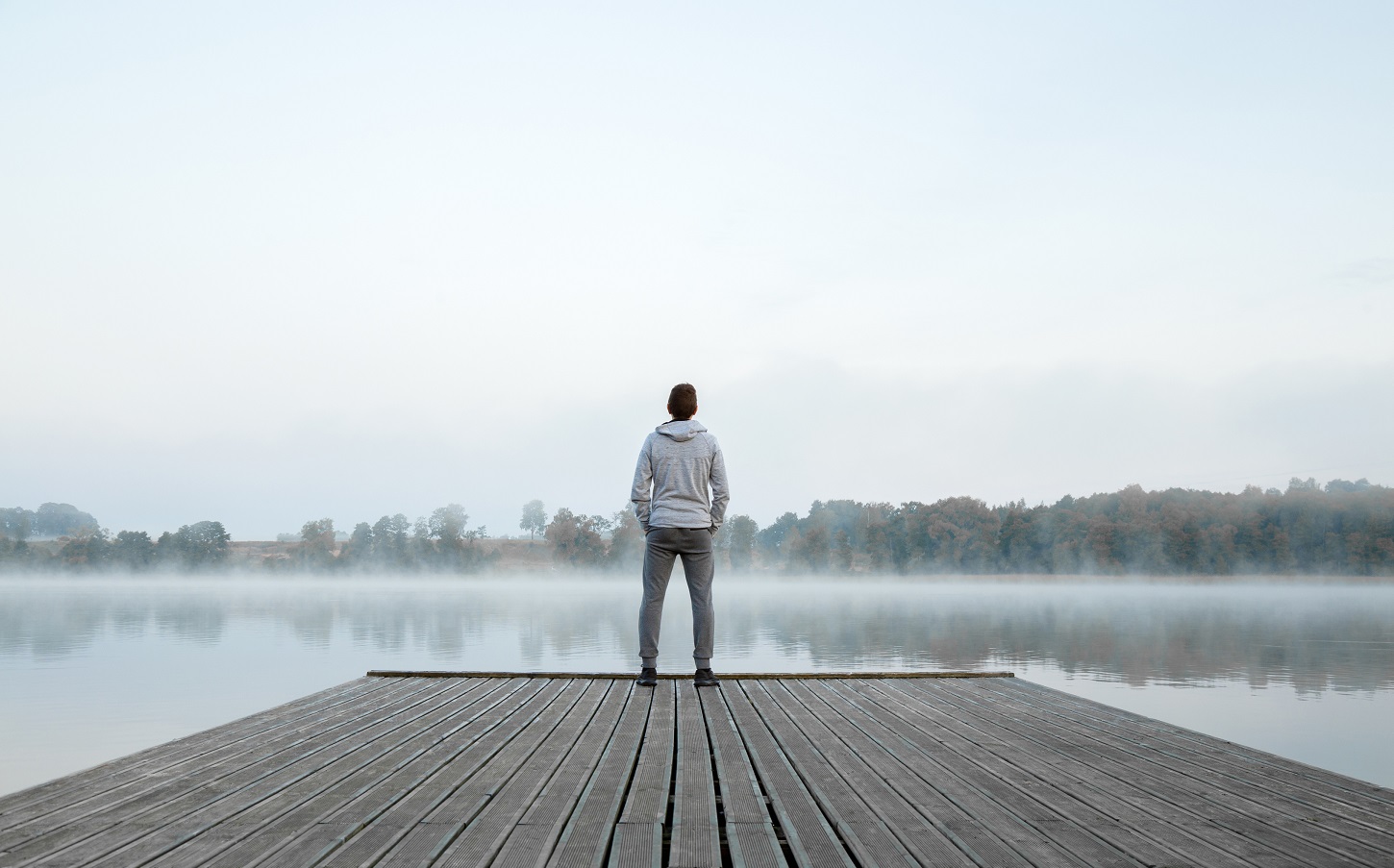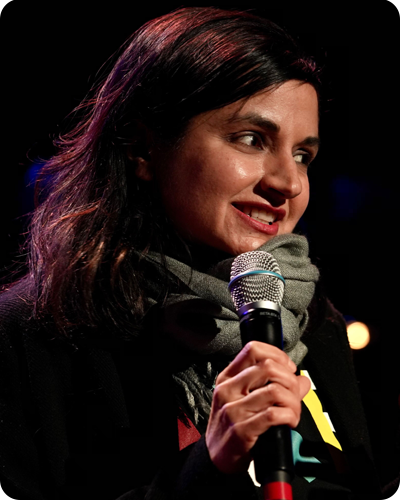The Dread in Your Head

Subscribe to Catalyst
Subscribe to get our magazine delivered right to your inbox
Related Articles
Subscribe to Catalyst
Subscribe to get our magazine delivered right to your inbox
Related Articles
It’s also around you: storms, fires, catastrophe — the intersections between climate and mental health — and what you can do about it.
In March, a small group gathered along the Rideau Canal in an act of collective mourning. It hadn’t been cold enough to keep the eight kilometre stretch frozen, so the iconic skateway would stay closed for the year. The vigil — organized by the Ecology Ottawa non-profit — gave people a chance to come together and animate discussions on climate change and loss. They would meet on the canal edge, frozen in time on so many postcards and in travelogues, to “be with our uncertainty, not knowing what will happen in the years to come,” as the e-vite put it.
Bringing the global reality of a changing climate close to home — and realizing some of the things we may no longer be able to do — helps us to ground a head-spinning catastrophic concept that can bring up feelings of grief, anxiety, and uncertainty.
But as opinion writer Trish Audette-Longo asked in Canada’s National Observer, could it also be a call to action? “On a scale of climate disasters, in which our collective attention necessarily focuses on the uneven impacts of wildfires, floods, and a range of other losses, one missed season on the Rideau Canal Skateway can register as a footnote for the history books,” she wrote, noting that an apocalyptic focus can eclipse the potential to envision alternative futures.
In other words, instead of imagining far-off idealized or end-of-time scenarios, what can we do right now?
Putting the mental in environmental
The umbrella term eco-anxiety is used to describe a number of emotional and mental states linked to a heightened awareness of climate change and concurrent distress in the face of its threatening implications for the future.
Defined by the American Psychological Association as a “chronic fear of environmental doom,” it manifests as anger, exhaustion, phobia, and despair. It can show up as flash-forwards, nightmares, and even “climate orthorexia,” which Britt Wray describes in Generation Dread: Finding Purpose in an Age of Climate Crisis as “an obsession with eating ‘clean’ for the sake of the environment.”
People in regions plagued by extreme weather usually experience elevated levels of climate-related fear and sadness (as will those living with the consequences for years to come). Two out of three respondents in a landmark Nature survey (10,000 people, ages 16 to 25, across 10 countries) reported having such experiences. Meanwhile, the Intergovernmental Panel on Climate Change included mental health consequences arising out of environmental catastrophes as part of its 2022 assessment report.
While eco-anxiety is not a term listed in the DSM-5, there is plenty of developing research in the field, nicely summarized by the headline in a University of Helsinki article — “Understanding the Mental in Environmental” — featuring the work of Panu Pihkala, an adjunct professor of eco-theology. Pihkala refers to one clinical intervention as “binocular vision;” meaning therapists help clients see that numerous bad and good things can co-exist (instead of black-and-white catastrophizing).
Fostering this sense of inner resilience was among five themes that emerged from a 2021 scoping review by Pauline Baudon and Liza Jachens on the treatment of eco-anxiety. The study appeared in a special issue of the International Journal of Environmental Research and Public Health about the psychological impacts of climate change. Apart from practitioners’ inner work and education, the other themes included encouraging clients to take action, connecting them with nature, and helping them find social connection and emotional support by joining groups.
After looking at various schools of thought, the review found that all approaches emphasized the value of group work as a way to support emotional processing and the ability to connect one’s inner experience of eco-anxiety to that of others and to broader social themes.
Gallows humour?
One form of group therapy involves taking an unfunny topic and giving it a lighter touch. In a March Guardian article called “How Do You Laugh About Death?” for instance, comedians tackle climate change as a gateway to address heavy themes or to try to bridge political polarities or talk to deniers. Participants in the Climate Comedy Cohort, a nine-month fellowship from American University’s Center for Media and Social Impact and the non-profit Generation180, develop shorts and pitch ideas to TV networks on intersecting issues about race and labour. The goal is to talk about climate — even irreverently — to boost civic engagement — something that, for many, can be a more motivating force for change than doom. For those not at the ha-ha stage, Carbon Conversations (in cities around the world) help people face their worries about climate change and stay engaged and ecologically motivated to act and make enduring lifestyle changes.
Perhaps you’ve made yours — say, with reusable bags and portable water bottles. While these have their place, such small lifestyle changes make me think about cruel optimism, a concept coined by University of Chicago cultural theorist Lauren Berlant. It means taking systemic problems with deep-rooted causes, like depression or obesity, and offering people a simplistic individual solution, usually in peppy language. While it sounds lovely because you’re telling them this massive issue can be solved, it is in fact cruel because the solution conceals deeper causes through neoliberal self-control narratives like engaging in healthy lifestyles or taking out gym memberships, which actually direct people’s attention away from the main concern and delay potential answers. To have effective solutions on global warming, we need our conversation and actions to move in time with the ticking climate clock.
Collectivist approaches
While those individual choices can add up — the neoliberal-only view can mean missing the forest for the trees.
As University of Toronto political science professor and Munk School environmental lab co-director Matt Hoffman told the Toronto Star, there needs to be a societal shift to make climate change an issue across party lines. Individuals can take their concerns to elected officials, the ballot box, and the bank (to encourage fossil fuel free investing, for example). These are things that individuals can do to apply pressure upward and achieve more systemic changes.
A way of combining hope and action can be seen in the Solutions section in The Narwhal, a Canadian non-profit environmental news outlet. The series profiles people and communities who are responding in real time to “broken regulatory systems [by] generating ideas for cleaner communities, and re-envisioning natural resource development.” The stories aim to inspire by looking at root problems and what is being done to fix them. Topics include renewable energy, the revitalization of Canada’s environmental laws, and ideas on daily living.
There is also a role for grief as we all face the results of a changing climate. What we choose to grieve can illuminate our fundamental dependency on healthy and thriving ecosystems — as well as the political and ethical responsibilities we have to such systems, to each other, and to our need to act. This was one finding from a 2020 article, called “You Can Never Replace the Caribou: Inuit Experiences of Ecological Grief From Caribou Declines.” In it, lead author Ashlee Cunsolo points to collectivist approaches — a “we-creating capacity” — that recalls our connections to others and our responsibility to mitigate human-induced environmental degradation.

Fateema Sayani
Fateema Sayani has worked in social purpose organizations and newsrooms for twenty-plus years, managing teams, strategy, research, fundraising, communications, and policy. Her work has been published in magazines and newspapers across Canada, focusing on social issues, policy, pop culture, and the Canadian music scene. She was a longtime columnist at the Ottawa Citizen and a senior editor and writer at Ottawa Magazine. She has been a juror for the Polaris Music Prize and the East Coast Music Awards and volunteers with global music presenting organization Axé WorldFest and the Canadian Advocacy Network. She holds a bachelor’s degree in journalism, a master’s degree in philanthropy and nonprofit leadership, and certificates in French-language writing from McGill and public policy development from the Max Bell Foundation Public Policy Training Institute. She researches nonprofit news models to support the development of this work in Canada and to shift narratives about underrepresented communities. Her work in publishing earned her numerous accolades for social justice reporting, including multiple Canadian Online Publishing Awards and the Joan Gullen Award for Media Excellence.




